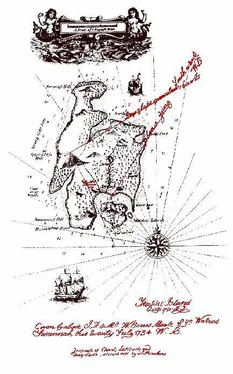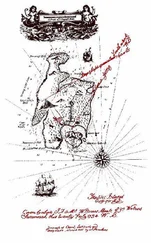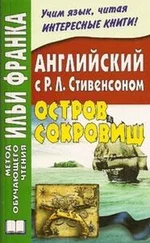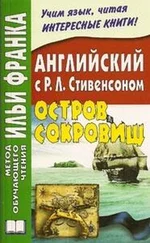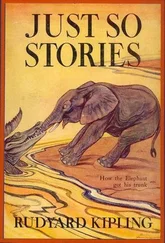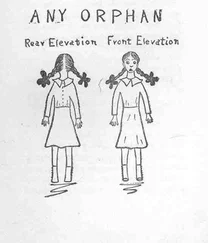in — подхватить, присоединиться ), with the fear of death upon them (с
боязнью смерти «на них»), and each singing louder than the other, to avoid
remark (и каждый пел громче, чем другой, чтобы избежать замечания). For in
these fits (так как в этих припадках) he was the most overriding companion ever
known (он был наиболее важным = грозным собеседником, чем когда-либо
/известный/; overriding — важнейший, доминирующий ); he would slap his hand
on the table for silence all round (ударял рукой по столу для тишины вокруг);
he would fly up in a passion of anger at a question (приходил в ярость при
вопросе = когда его спрашивали; to fly up — взлететь, спорхнуть ), or
sometimes because none was put (или иногда потому, что никакой /вопрос/ не
был задан), and so he judged the company was not following his story (поэтому
он решал, /что/ компания не следовала его истории = невнимательно
слушала). Nor would he allow anyone to leave the inn (также не позволял он
кому-либо уйти из трактира; to leave — покидать, оставлять ) till he had
drunk himself sleepy and reeled off to bed (пока не напивался до дремотного
состояния и ковылял к кровати; sleepy — сонный, вялый; to reel off —
сматывать, разматывать /трос/ ).
terrified [`terIfaId] wicked [`wIkId] bear [beq] neighbour [`neIbq] overriding
[quvq`raIdIN]
Мультиязыковой проект Ильи Франка www.franklang.ru
14
1. But though I was so terrified by the idea of the seafaring man with one leg,
I was far less afraid of the captain himself than anybody else who knew him.
There were nights when he took a deal more rum and water than his head
would carry; and then he would sometimes sit and sing his wicked, old, wild
sea-songs, minding nobody; but sometimes he would call for glasses round,
and force all the trembling company to listen to his stories or bear a chorus to
his singing. Often I have heard the house shaking with 'Yo-ho-ho, and a bottle
of rum;' all the neighbours joining in for dear life, with the fear of death upon
them, and each singing louder than the other, to avoid remark. For in these
fits he was the most overriding companion ever known; he would slap his
hand on the table for silence all round; he would fly up in a passion of anger
at a question, or sometimes because none was put, and so he judged the
company was not following his story. Nor would he allow anyone to leave the
inn till he had drunk himself sleepy and reeled off to bed.
1. His stories were what frightened people worst of all (его истории были /тем/,
что пугало людей больше всего). Dreadful stories they were (ужасными
историями они были); about hanging (о повешении), and walking the plank (и
хождении по доске /в открытое море/ — вид казни: пираты часто
заставляли несчастных людей на захваченном корабле идти с завязанными
глазами по доске в море ), and storms at sea (/о/ штормах на море), and the Dry
Tortugas (об /островах/ Драй Тортугас / группа мелких коралловых островов в
Мексиканском заливе, на юго-западе Флориды /), and wild deeds and places on
the Spanish Main (диких деяниях и местах у испанского материка /в районе
Карибского моря/).
2. By his own account (по его собственному рассказу) he must have lived his life
among some of the wickedest men (он, должно быть, прожил жизнь среди
Мультиязыковой проект Ильи Франка www.franklang.ru
15
/неких/ самых отъявленных людей = злодеев) that God ever allowed upon the
sea (которым Господь когда-либо позволял /плавать/ по морю); and the
language in which he told these stories (язык, которым он рассказывал эти
истории) shocked our plain country people (шокировал наших простых
деревенских людей) almost as much as the crimes that he described (почти так
же, как и преступления, которые он описывал).
frightened [`fraItnd] dreadful [dredful] hanging [`hxNIN] language
[`lxNgwIG]
1. His stories were what frightened people worst of all. Dreadful stories they
were; about hanging, and walking the plank, and storms at sea, and the Dry
Tortugas, and wild deeds and places on the Spanish Main.
2. By his own account he must have lived his life among some of the wickedest
men that God ever allowed upon the sea; and the language in which he told
these stories shocked our plain country people almost as much as the crimes
that he described.
1. My father was always saying the inn would be ruined (мой отец всегда
говорил, /что/ трактир разорится), for people would soon cease coming there
(так как люди скоро перестанут приходить туда) to be tyrannized over and put
down (чтобы быть = из-за опасности быть деспотически подавленными и
униженными), and sent shivering to their beds (идти, дрожа, спать = домой: «и
быть отправленными, дрожащими, в свои постели»; to send — посылать,
отправлять ); but I really believe his presence did us good (но я действительно
думал, /что/ его присутствие помогало нам). People were frightened at the time
Мультиязыковой проект Ильи Франка www.franklang.ru
16
(люди были напуганы в то время), but on looking back they rather liked it (но,
обернувшись = вспомнив, им скорее нравилось это); it was a fine excitement in
a quiet country life (это было прекрасное волнение в тихой деревенской
жизни); and there was even a party of the younger me (была даже группа
/людей/ моложе меня) who pretended to admire him (которые делали вид, что
Читать дальше
Конец ознакомительного отрывка
Купить книгу
